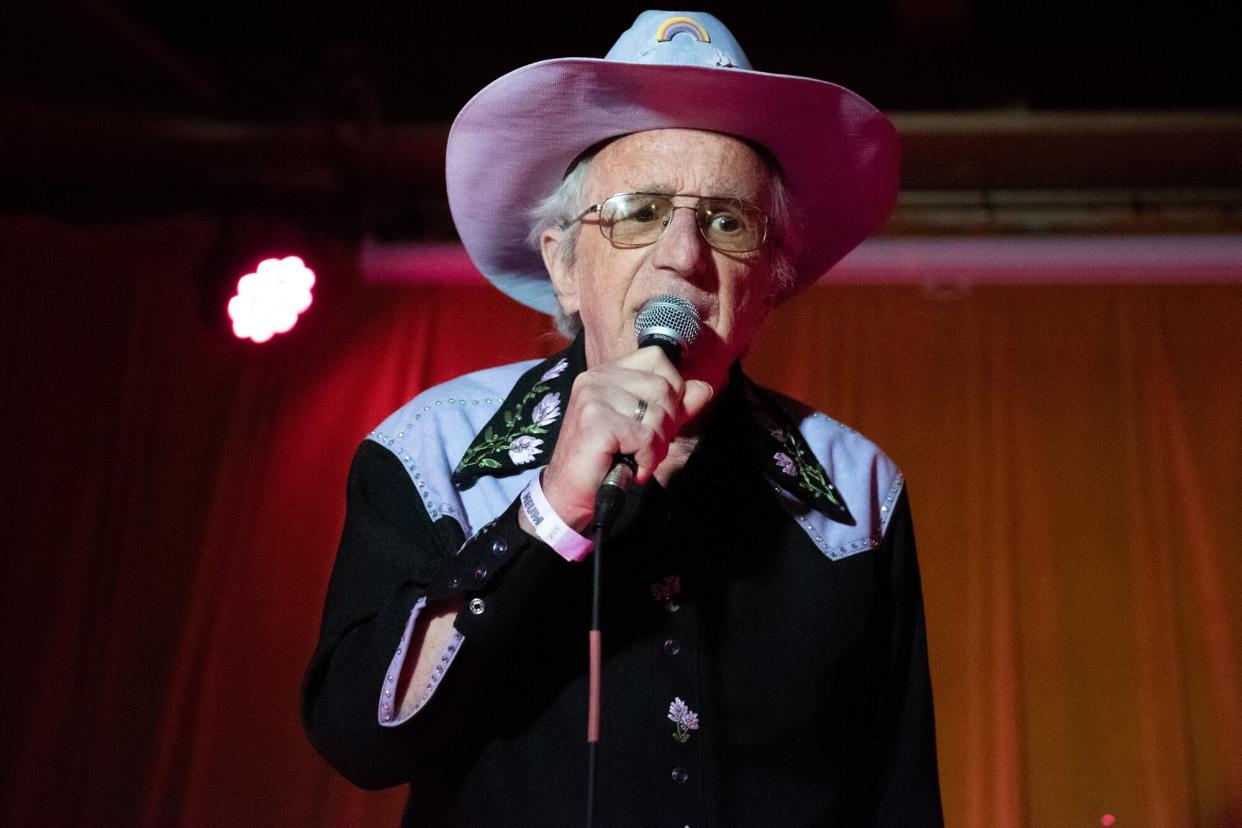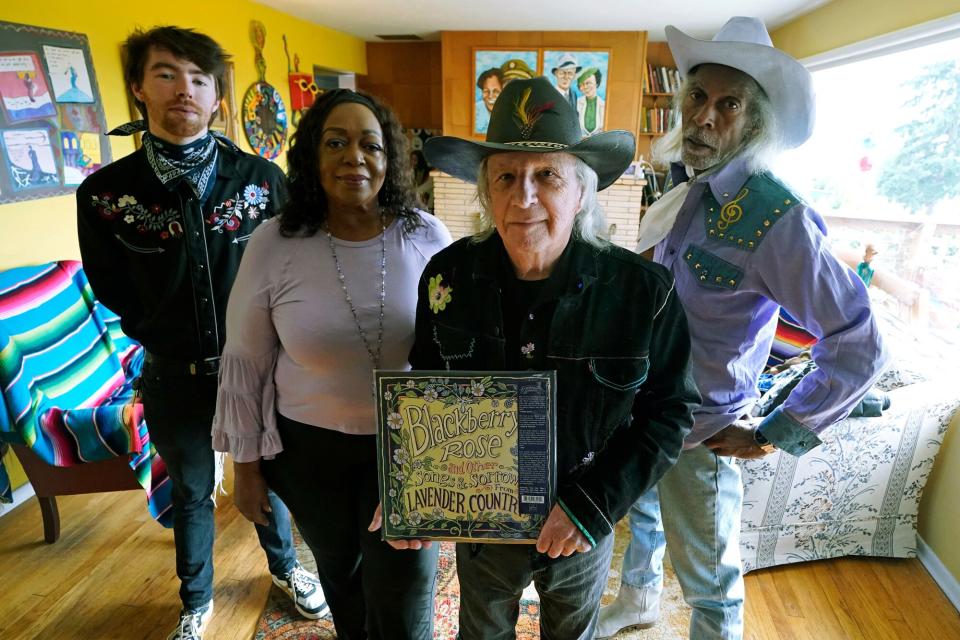Lavender Country Member and Gay Country Music Trailblazer Patrick Haggerty Dead at 78, Band Confirms

- Oops!Something went wrong.Please try again later.
- Oops!Something went wrong.Please try again later.
- Oops!Something went wrong.Please try again later.
Jim Bennett/Getty Patrick Haggerty
Patrick Haggerty, the leader of what is oftentimes referred to as the first proudly queer country music group Lavender Country, has died at 78.
On Tuesday, the Lavender Country Instagram account released a statement confirming Haggerty's death.
"This morning, we lost a great soul. RIP Patrick Haggerty," the statement read, alongside a photo of the singer performing. "After suffering a stroke several weeks ago, he was able to spend his final days at home surrounded by his kids and lifelong husband, JB."
The statement concluded, "Love, and solidarity. 💜💜💜"
Lavender Country — which consists of members Haggerty, Michael Carr, Eve Morris and Robert Hammerstrom — released their self-titled debut album in 1973. The album included songs like "Come Out Singing" and "Cryin' These Cocksucking Tears" — making it the first openly gay-themed album in country music history.
Haggerty wrote Lavender Country as a statement, as he refused to conform to the heteronormative standards at the time.
"When we made 'Lavender Country,' we weren't stupid," he told CNN in March. "No genre was going to take stock of anything that I had to say."
Later, in 2014, the band had the opportunity to re-release the album. Then, nearly 50 years later, Haggerty released a second Lavender Country album titled Blackberry Rose in February.

Ted S Warren/AP/Shutterstock Lavender Rose
"The very thing that sank me in the first place is the very thing that jettisoned me into this position," he told CNN.
Haggerty was born on Sept. 27, 1944 and was raised on a farm near Port Angeles, Washington. He was the sixth of 10 children and son to a dairy farmer and a homemaker. He knew he was gay from an early age and credited his parents for being supportive.
He went on to join the Peace Corps in his early 20s but was kicked out for his gay identity. He then found family in Seattle's LGBTQ+ community, and they encouraged him to record an album — eventually leading him to the band.
After the release of Lavender Country, he would advocate for HIV/AIDS awareness, LGBTQ causes and the civil rights of Black Americans. He also married husband JB, and they had two children.
"I filled up my life with all kinds of interesting and engaging things that were meaningful to me that didn't have anything to do with music," he told CNN in March.
He also went on to perform with queer country artists like Orville Peck and Trixie Mattel. Following the news of his death, Peck remembered Haggerty as the "grandfather of queer country."
"One of the funniest, bravest and kindest souls I've ever known, he pioneered a movement and a message in Country that was practically unheard of," wrote Peck, with photos of the pair performing together. "A true singular legend."
Toward the end, Haggerty said he never aspired to reach country stardom in a traditional sense — and he was happy about how his journey turned out.
"In secret, I wanted to be a hambone all along, I admit it," he previously told CNN. "But now I get to use my hambone-edness to foment social change and struggle for a better world."

